Filter by

Loud and Proud Passion and politics in the English Defence League
The book uses interviews, informal conversations and extended observation at EDL events to critically reflect on the gap between the movement's public image and activists' own understandings of it. It details how activists construct the EDL, and themselves, as 'not racist, not violent, just no longer silent' inter alia through the exclusion of Muslims as a possible object of racism on the groun…
- Edition
- -
- ISBN/ISSN
- 9781526114013
- Collation
- -
- Series Title
- -
- Call Number
- -
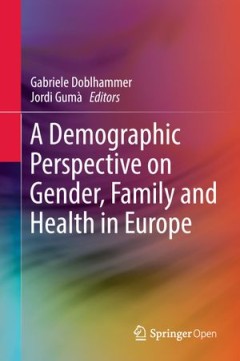
A Demographic Perspective on Gender, Family and Health in Europe
family; relationships; health, parenthood
- Edition
- -
- ISBN/ISSN
- 9783319723556
- Collation
- -
- Series Title
- -
- Call Number
- 330 DOB d
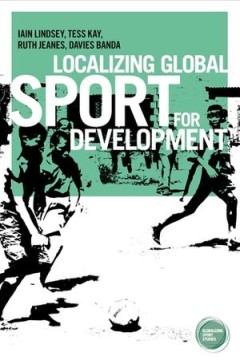
Localizing global sport for development
Drawing on nearly a decade of wide-ranging, multidisciplinary research undertaken with young people and adults living and working in urban communities in Zambia, this jointly-authored book extends existing understandings of the use of sport to contribute to global development agendas has burgeoned over the last two decades. The book’s locally-centred and contextualized analysis represents an …
- Edition
- -
- ISBN/ISSN
- 9781526104991
- Collation
- -
- Series Title
- -
- Call Number
- -

Cyborgs in Latin America
Cyborgs in Latin America explores the ways cultural expression in Latin America has grappled with the changing relationships between technology and human identity. The book takes a literary and cultural studies approach in examining narrative, film and advertising campaigns from Argentina, Bolivia, Chile, Mexico and Uruguay by such artists as Ricardo Piglia, Edmundo Paz Soldán, Carmen Boullosa…
- Edition
- -
- ISBN/ISSN
- 9780230103900
- Collation
- -
- Series Title
- -
- Call Number
- 301 BRO c
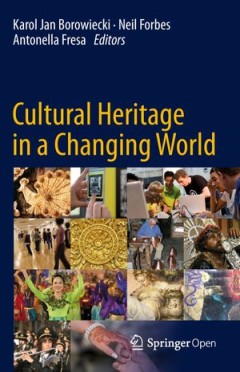
Cultural Heritage in a Changing World
Cultural Heritage; Cultural Economics; Cultural Studies; Archaeology; Information Storage and Retrieval; Information Systems Applications (incl. Internet)
- Edition
- -
- ISBN/ISSN
- 9783319295428
- Collation
- -
- Series Title
- -
- Call Number
- 301 BOR c
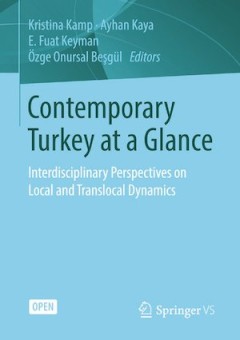
Contemporary Turkey at a Glance: Interdisciplinary Perspectives on Local and …
Introduction Turkey has witnessed significant social, cultural, and political change over the last decades. This transformation has manifested itself in all segments of society and resulted in the alteration of political ideologies and institutions. The twelve authors of this volume shed light on the complexities of a changing Turkey through an interdisciplinary perspective. Their application o…
- Edition
- -
- ISBN/ISSN
- 9783658049164
- Collation
- -
- Series Title
- -
- Call Number
- 360 CON c

Contemporary Perspectives on Ageism
Older adults outnumbering children; Gerontology/geriatrics; Aging world population; The study of ageism; Ageism is the most prevalent form of discrimination
- Edition
- -
- ISBN/ISSN
- 9783319738192
- Collation
- -
- Series Title
- -
- Call Number
- 330 AYA c
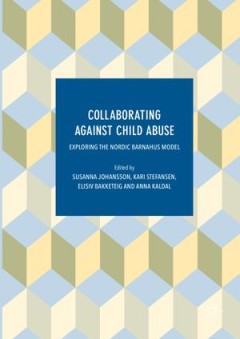
Collaborating Against Child Abuse: Exploring The Nordic Barnahus Model
Scandinavia; child protection; multi-agency working; criminology; policy
- Edition
- -
- ISBN/ISSN
- -
- Collation
- -
- Series Title
- -
- Call Number
- 360

Cohabitation and Marriage in The Americas: Geo-Historical Legacies and New Tr…
This open access book presents an innovative study of the rise of unmarried cohabitation in the Americas, from Canada to Argentina. Using an extensive sample of individual census data for nearly all countries on the continent, it offers a cross-national, comparative view of this recent demographic trend and its impact on the family. The book offers a tour of the historical legacies and regional…
- Edition
- -
- ISBN/ISSN
- 9783319314402
- Collation
- -
- Series Title
- -
- Call Number
- 301 COH c

Chapter 8 Categorising What We Study and What We Analyse, and the Exercise of…
A lot of qualitative researchers have a healthy wariness about straightforward categorisation and modelling endeavours undertaken by quantitative researchers. Too often, variables and measurements are too rigid in quantitative analysis to take stock of all the complexity and context-dependency of human behaviour, attitudes and identities. In the worst-case scenario for migration studies, this l…
- Edition
- -
- ISBN/ISSN
- 9783319768618
- Collation
- -
- Series Title
- -
- Call Number
- 351.81 JAC c
 Computer Science, Information & General Works
Computer Science, Information & General Works  Philosophy & Psychology
Philosophy & Psychology  Religion
Religion  Social Sciences
Social Sciences  Language
Language  Pure Science
Pure Science  Applied Sciences
Applied Sciences  Art & Recreation
Art & Recreation  Literature
Literature  History & Geography
History & Geography